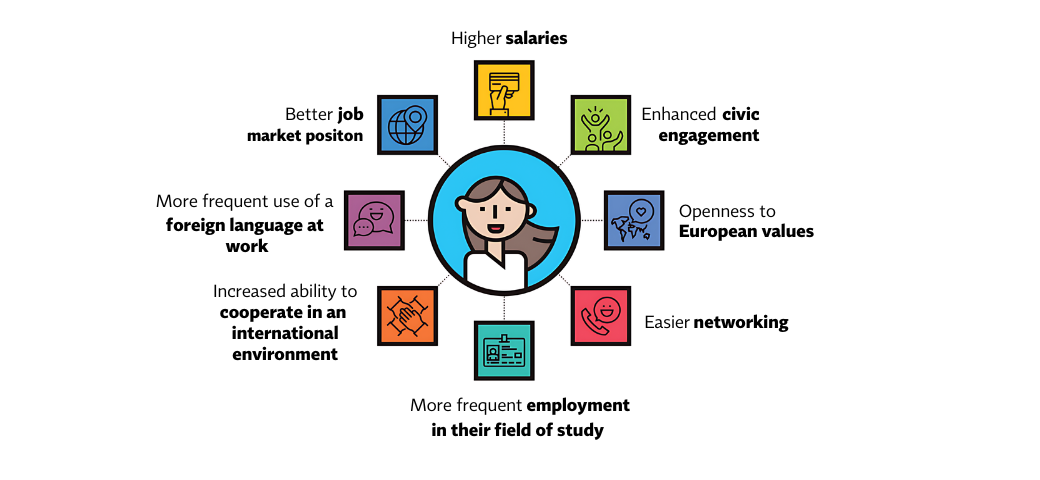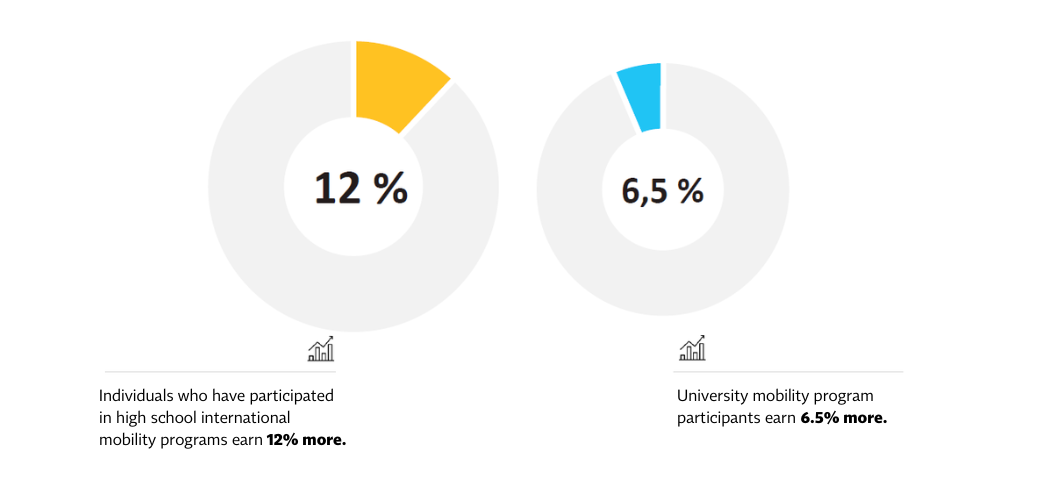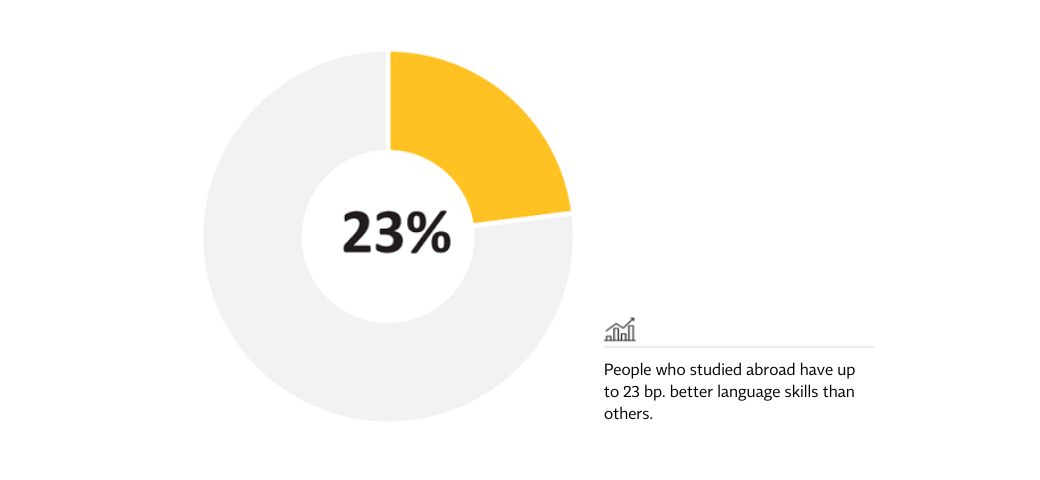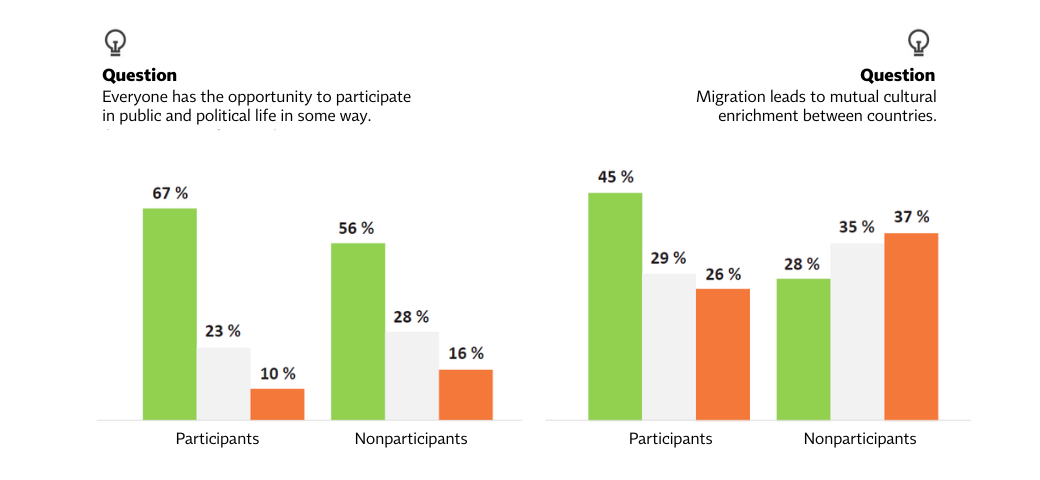What impact does going abroad have on life?
We asked you a range of questions about your life, and set up tests and social experiments to reveal your attitudes to life, education and European values - sometimes in less comfortable situations.
Both those who already have experience of the Erasmus+ programme and those who do not and who may still be waiting for their opportunity in international education took part in the survey. Can you tell who is who by the answers?
A survey revealed that Erasmus+ participants believe they have control over their lives, are less concerned about their future, are more open to European values, and feel more confident in the job market. These findings reinforce what earlier surveys have shown: international experience and studying abroad have a genuinely positive effect on people's lives.
Studying abroad fosters a broader world perspective, enhances civic engagement, and boosts self-confidence. It positively influences participants by improving their employability, salary prospects, and language skills. International experience enriches every aspect of an individual's knowledge, skills, attitudes, and relationships.
The survey included those who have already participated in the Erasmus+ programme and those who have not yet had the opportunity but are eager to pursue international education. The research was conducted exclusively for the Czech National Agency for International Education and Research by STEM/MARK in 2023, addressing the question, "What impact does going abroad have on life?"
International experience has the most profound impact on people's lives in the following areas:

1. Employment and Salaries
- Participation in international programs leads to higher salaries, better job positions, and a competitive advantage in the job market compared to graduates without international experience. On average, individuals who have participated in high school international mobility programs earn 12% more, while university mobility program participants earn 6.5% more. These participants feel more confident in the job market and believe they can easily find new opportunities, even in an international environment. A significant factor for them is the sense of fulfillment they derive from their work. They are also more likely to hold management positions.

2. Competencies
Graduates who have participated in international programs demonstrate higher competencies in the following areas:
- Collaboration in an international environment
- Language proficiency
- Networking skills

Working in international companies or organizations is 10% more common among those who have participated in international programs compared to those who have not. They are also 8% more likely to work in the same or a related field.
Furthermore, they are 9% more skilled at establishing new contacts. Additionally, they are 15% more likely to use a foreign language in their work, and if they currently don't, they are more inclined to want to change that.

3. Values
Graduates of international programs are more likely to recognize the positive benefits of EU membership, the advantageuous effects of migration, and the importance of public engagement.

Further information on the impacts can be found in this presentation.
Do you want to experience international education and change your life?
You can study abroad, gain professional experience, volunteer, engage in further education, or even implement an educational project with international partners. We offer a wide range of programs that support mobility and collaboration between individuals and organizations. Whether you are a student, teacher, or education professional, you can take advantage of our programs through your institution, which will assist you with the application and administrative process. Individuals also have the opportunity to go abroad independently, always within the framework of our specific programs.
Join us through programs like Erasmus+, the European Solidarity Corps, CEEPUS, AKTION Czech Republic – Austria, and many others we manage.
Eligible participants include:
- Preschools and elementary schools (including special and art schools)
- Grammar schools and language schools authorized to issue state language exams
- Secondary vocational schools, higher vocational schools, and apprenticeship programs
- Universities (public, state, and private), along with their students and staff
- Organizations active in adult education (cultural and artistic institutions, public libraries, non-governmental non-profit organizations, professional societies, and sectoral associations)
- Young people aged 13–35, organizations working with youth (non-profits, youth centers, etc.), and informal groups of young people
- Coaches and employees in the field of sports